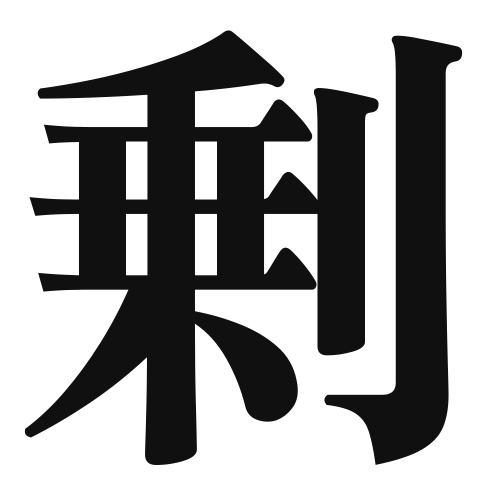1. Overview of Meaning
The kanji “剰” (jou) generally means “surplus” or “excess.” It refers to something that remains after the necessary amount has been used or consumed.
2. Formation and Radical
The kanji “剰” is a phonetic compound (形声文字) that combines the radical “刀” (katana, meaning “sword”) and the phonetic component “常” (jou, meaning “usual” or “normal”). The radical suggests a connection to cutting or separating, while the phonetic component provides the pronunciation.
The radical for “剰” is “刀,” which indicates its relation to actions involving cutting or division.
3. Examples of Usage
Common words and phrases that include “剰” are:
- 剰余 (じょうよ, jouyo) – surplus
- 剰職 (じょうしょく, joushoku) – excess employment
Example sentence in daily conversation:
「この食べ物は剰余があるので、持って帰ってもいいですか?」
(Is it okay if I take home the surplus food?)
4. Synonyms and Antonyms
Similar kanji with related meanings include:
- 余 (よ, yo) – also means “surplus” but can imply a more general sense of excess.
Antonyms include:
- 不足 (ぶそく, busoku) – meaning “insufficiency” or “lack.”
5. Cultural and Historical Background
The kanji “剰” is often used in contexts related to economics and resource management in Japanese culture. It reflects the importance of balance and efficiency in resource use.
Proverbs and idiomatic expressions that relate to “剰” include:
- 「余計なことはしない方がいい」 (It’s better not to do unnecessary things), which emphasizes the idea of avoiding excess.
